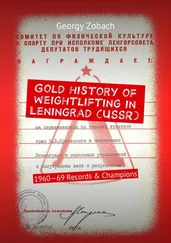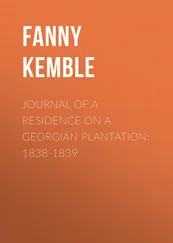Fanny Kemble - Records of a Girlhood
Здесь есть возможность читать онлайн «Fanny Kemble - Records of a Girlhood» — ознакомительный отрывок электронной книги совершенно бесплатно, а после прочтения отрывка купить полную версию. В некоторых случаях можно слушать аудио, скачать через торрент в формате fb2 и присутствует краткое содержание. Жанр: foreign_prose, foreign_antique, на английском языке. Описание произведения, (предисловие) а так же отзывы посетителей доступны на портале библиотеки ЛибКат.
- Название:Records of a Girlhood
- Автор:
- Жанр:
- Год:неизвестен
- ISBN:нет данных
- Рейтинг книги:4 / 5. Голосов: 1
-
Избранное:Добавить в избранное
- Отзывы:
-
Ваша оценка:
- 80
- 1
- 2
- 3
- 4
- 5
Records of a Girlhood: краткое содержание, описание и аннотация
Предлагаем к чтению аннотацию, описание, краткое содержание или предисловие (зависит от того, что написал сам автор книги «Records of a Girlhood»). Если вы не нашли необходимую информацию о книге — напишите в комментариях, мы постараемся отыскать её.
Records of a Girlhood — читать онлайн ознакомительный отрывок
Ниже представлен текст книги, разбитый по страницам. Система сохранения места последней прочитанной страницы, позволяет с удобством читать онлайн бесплатно книгу «Records of a Girlhood», без необходимости каждый раз заново искать на чём Вы остановились. Поставьте закладку, и сможете в любой момент перейти на страницу, на которой закончили чтение.
Интервал:
Закладка:
I was now placed in a school in the Rue d'Angoulême, Champs Élysées; a handsome house, formerly somebody's private hotel, with porte cochère , cour d'honneur , a small garden beyond, and large, lofty ground-floor apartments opening with glass doors upon them. The name of the lady at the head of this establishment was Rowden; she had kept a school for several years in Hans Place, London, and among her former pupils had had the charge of Miss Mary Russell Mitford, and that clever but most eccentric personage, Lady Caroline Lamb. The former I knew slightly, years after, when she came to London and was often in friendly communication with my father, then manager of Covent Garden, upon the subject of the introduction on the stage of her tragedy of the "Foscari."
The play of "Rienzi," in which Miss Mitford achieved the manly triumph of a really successful historical tragedy, is, of course, her principal and most important claim to fame, though the pretty collection of rural sketches, redolent of country freshness and fragrance, called "Our Village," precursor, in some sort, of Mrs. Gaskell's incomparable "Cranford," is, I think, the most popular of Miss Mitford's works.
She herself has always a peculiar honor in my mind, from the exemplary devotion of her whole life to her father, for whom her dutiful and tender affection always seemed to me to fulfil the almost religious idea conveyed by the old-fashioned, half-heathen phrase of "filial piety."
Lady Caroline Lamb I never saw, but from friends of mine who were well acquainted with her I have heard manifold instances of her extraordinary character and conduct. I remember my friend Mr. Harness telling me that, dancing with him one night at a great ball, she had suddenly amazed him by the challenge: "Gueth how many pairth of thtockingth I have on." (Her ladyship lisped, and her particular graciousness to Mr. Harness was the result of Lord Byron's school intimacy with and regard for him.) Finding her partner quite unequal to the piece of divination proposed to him, she put forth a very pretty little foot, from which she lifted the petticoat ankle high, lisping out, "Thixth."
I remember my mother telling me of my father and herself meeting Mr. and Lady Caroline Lamb at a dinner at Lord Holland's, in Paris, when accidentally the expected arrival of Lord Byron was mentioned. Mr. Lamb had just named the next day as the one fixed for their departure; but Lady Caroline immediately announced her intention of prolonging her stay, which created what would be called in the French chambers "sensation."
When the party broke up, my father and mother, who occupied apartments in the same hotel as the Lambs,—Meurice's,—were driven into the court-yard just as Lady Caroline's carriage had drawn up before the staircase leading to her rooms, which were immediately opposite those of my father and mother. A ruisseau or gutter ran round the court-yard, and intervened between the carriage step and the door of the vestibule, and Mr. Lamb, taking Lady Caroline, as she alighted, in his arms (she had a very pretty, slight, graceful figure), gallantly lifted her over the wet stones; which act of conjugal courtesy elicited admiring approval from my mother, and from my father a growl to the effect, "If you were my wife I'd put your ladyship in the gutter," justified perhaps by their observation of what followed. My mother's sitting-room faced that of Lady Caroline, and before lights were brought into it she and my father had the full benefit of a curious scene in the room of their opposite neighbors, who seemed quite unmindful that their apartment being lighted and the curtains not drawn, they were, as regarded the opposite wing of the building, a spectacle for gods and men.
Mr. Lamb on entering the room sat down on the sofa, and his wife perched herself on the elbow of it with her arm round his neck, which engaging attitude she presently exchanged for a still more persuasive one, by kneeling at his feet; but upon his getting up, the lively lady did so also, and in a moment began flying round the room, seizing and flinging on the floor cups, saucers, plates,—the whole cabaret ,—vases, candlesticks, her poor husband pursuing and attempting to restrain his mad moiety, in the midst of which extraordinary scene the curtains were abruptly closed, and the domestic drama finished behind them, leaving no doubt, however, in my father's and mother's minds that the question of Lady Caroline's prolonged stay till Lord Byron's arrival in Paris had caused the disturbance they had witnessed.
I never read "Glenarvon," in which, I believe, Lady Caroline is supposed to have intended to represent her idol, Lord Byron, and the only composition of hers with which I am acquainted is the pretty song of "Waters of Elle," of which I think she also wrote the air. She was undoubtedly very clever, in spite of her silliness, and possessed that sort of attraction, often as powerful as unaccountable, which belongs sometimes to women so little distinguished by great personal beauty, that they have suggested the French observation that "ce sont les femmes laides qui font les grandes passions." The European women fascinating par excellence are the Poles; and a celebrated enchantress of that charming and fantastic race of sirens, the Countess Delphine Potocka, always reminded me of Lady Caroline Lamb, in the descriptions given of her by her adorers.
With Mr. Lamb I never was acquainted till long after Lady Caroline's death—after I came out on the stage, when he was Lord Melbourne, and Prime Minister of England. I was a very young person, and though I often met him in society, and he took amiable and kindly notice of me, our intercourse was, of course, a mere occasional condescension on his part.
He was exceedingly handsome, with a fine person, verging towards the portly, and a sweet countenance, more expressive of refined, easy, careless good-humor, than almost any face I ever saw. His beauty was of too well born and well bred a type to be unpleasantly sensual; but his whole face, person, expression, and manner conveyed the idea of a pleasure-loving nature, habitually self-indulgent, and indulgent to others. He was my beau ideal of an Epicurean philosopher (supposing it possible that an Epicurean philosopher could have consented to be Prime Minister of England), and I confess to having read with unbounded astonishment the statement in the "Greville Memoirs," that this apparent prince of poco curanti had taken the pains to make himself a profound Hebrew scholar.
I retain one very vivid impression of that most charming of debonair noblemen, Lord Melbourne. I had the honor of dining at his house once, with the beautiful, highly gifted, and unfortunate woman with whom his relations afterwards became subject of such cruel public scandal; and after dinner I sat for some time opposite a large, crimson-covered ottoman, on which Lord Melbourne reclined, surrounded by those three enchanting Sheridan sisters, Mrs. Norton, Mrs. Blackwood (afterwards Lady Dufferin), and Lady St. Maur (afterwards Duchess of Somerset, and always Queen of Beauty). A more remarkable collection of comely creatures, I think, could hardly be seen, and taking into consideration the high rank, eminent position, and intellectual distinction of the four persons who formed that beautiful group, it certainly was a picture to remain impressed upon one's memory.
To return to my school-mistress, Mrs. Rowden; she was herself an authoress, and had published a poem dedicated to Lady Bessborough (Lady Caroline Lamb's mother), the title of which was "The pleasures of friendship" (hope, memory, and imagination were all bespoken), of which I remember only the two opening lines—
"Visions of early youth, ere yet ye fade,
Let my light pen arrest your fleeting shade."
Интервал:
Закладка:
Похожие книги на «Records of a Girlhood»
Представляем Вашему вниманию похожие книги на «Records of a Girlhood» списком для выбора. Мы отобрали схожую по названию и смыслу литературу в надежде предоставить читателям больше вариантов отыскать новые, интересные, ещё непрочитанные произведения.
Обсуждение, отзывы о книге «Records of a Girlhood» и просто собственные мнения читателей. Оставьте ваши комментарии, напишите, что Вы думаете о произведении, его смысле или главных героях. Укажите что конкретно понравилось, а что нет, и почему Вы так считаете.












